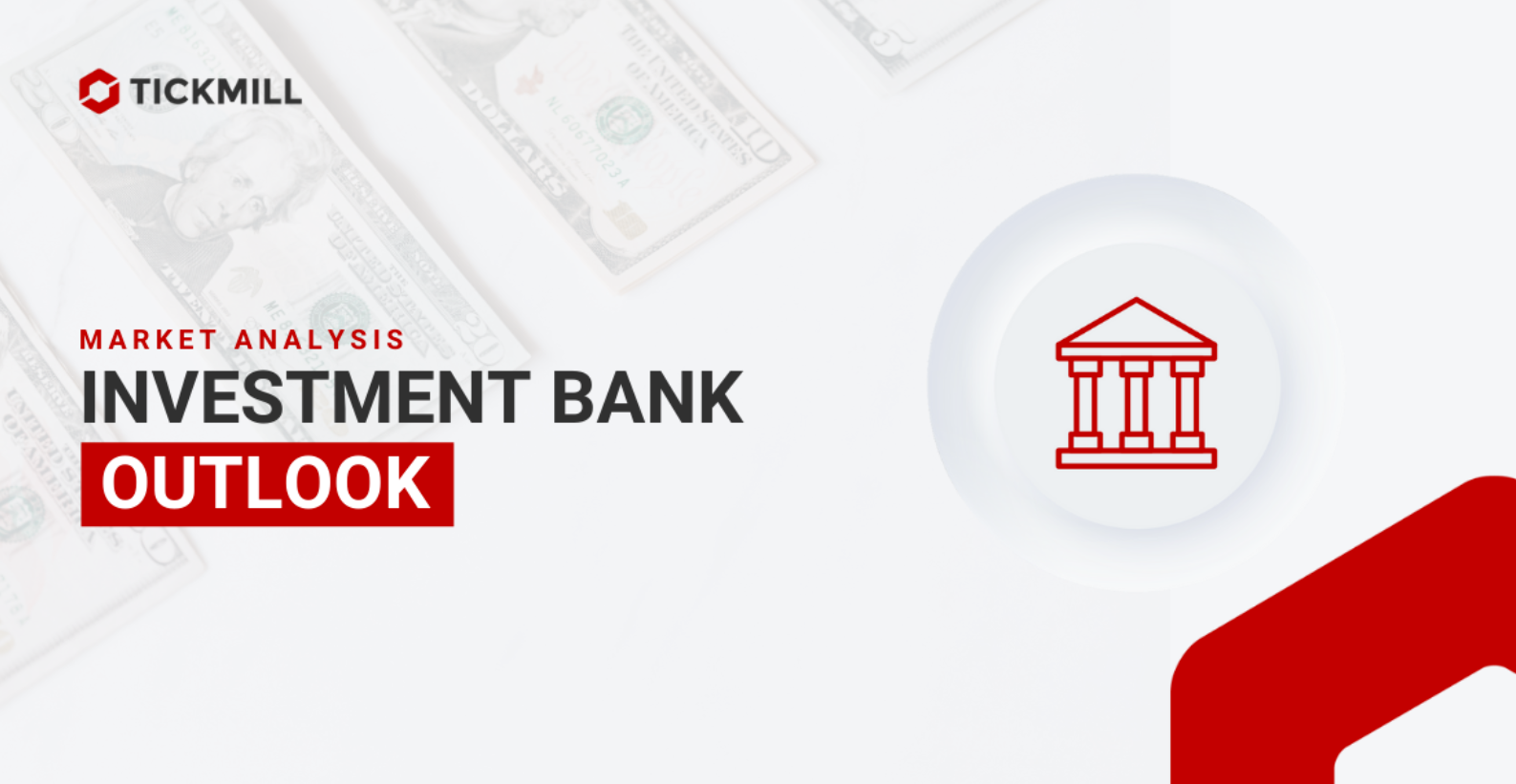Investment Bank Outlook 04-07-2022

USD: July has historically been considered a low-volatility month in global markets: this year, this notion may fall quite far from reality. Even if global equities have mostly embedded the new inflation-focused approach by the Fed and other major central banks, the depth of the upcoming global slowdown remains highly uncertain, leaving risk assets in a rather fragile state for now. Stock and bond market volatility is set to continue generating material volatility in the FX market, in our view.
It is therefore quite hard to forecast a marked change of direction in the dollar for now, even though recent CFTC data continues to show speculative dollar positions have remained around two-year highs, in theory leaving the greenback at risk of a long-squeeze. The week ahead sees two major releases in the US.
The June FOMC minutes (Wednesday) may tilt the balance towards markets fully pricing in a 75bp rate hike at the end of this month, should there be some indication of a growing consensus at the June meeting.
All high-beta currencies may remain on the back foot, although we continue to see the Canadian dollar as the least vulnerable of that segment given the still positive commodity story and some jobs data (also on Friday) which may do little to challenge the Bank of Canada’s aggressive tightening plans. Today, markets will keep an eye on the BoC business outlook survey for 2Q, normally an important piece of information for the Bank’s policy decision, while in the US the calendar is very light and markets are closed for the Independence Day holiday.
EUR: Last week’s CPI jump in the eurozone had a contained impact on EUR/USD, highlighting the recent lack of sensitivity of the common currency to the inflation numbers as: a) markets are already pricing in 140bp of ECB tightening by year-end; b) global assets seem to be trading more in tandem with recession fears given that aggressive monetary tightening has been largely factored in.
Recession fears now appear to be mostly linked to further developments in Russia-EU relations pertaining to gas flows, as fears of Russia halting or further reducing exports to Europe remain quite elevated. The data calendar is rather quiet this week in the eurozone and several ECB speakers - Joachim Nagel and Luis de Guindos today, Christine Lagarde, Philip Lane and others later this week – may still fail to generate any material jitters in EUR/USD.
AUD: The Reserve Bank of Australia announces monetary policy before the European open tomorrow (0530 BST), and the main question is whether policymakers will hike by 25bp or by another 50bp. As discussed in our RBA meeting preview, we think another half-point increase is more likely. A larger, 75bp hike, cannot be fully ruled out, but we think it is improbable given that it was not mentioned as a possibility by Governor Lowe at a recent speech and may be an unwarranted move given that the RBA sets its policy monthly and therefore has greater flexibility than others in adjusting its policy path.
Disclaimer: The material provided is for information purposes only and should not be considered as investment advice. The views, information, or opinions expressed in the text belong solely to the author, and not to the author’s employer, organization, committee or other group or individual or company.
Past performance is not indicative of future results.
High Risk Warning: CFDs are complex instruments and come with a high risk of losing money rapidly due to leverage. 72% and 73% of retail investor accounts lose money when trading CFDs with Tickmill UK Ltd and Tickmill Europe Ltd respectively. You should consider whether you understand how CFDs work and whether you can afford to take the high risk of losing your money.
Futures and Options: Trading futures and options on margin carries a high degree of risk and may result in losses exceeding your initial investment. These products are not suitable for all investors. Ensure you fully understand the risks and take appropriate care to manage your risk.
With 10 years of experience as a private trader and professional market analyst under his belt, James has carved out an impressive industry reputation. Able to both dissect and explain the key fundamental developments in the market, he communicates their importance and relevance in a succinct and straight forward manner.
